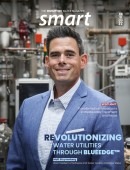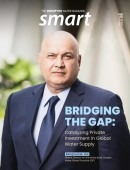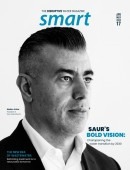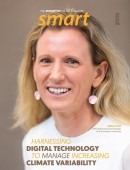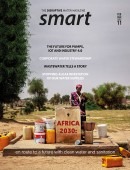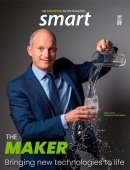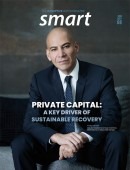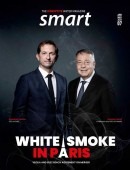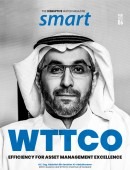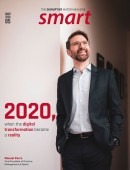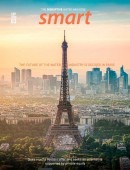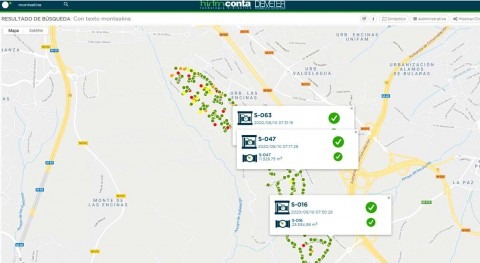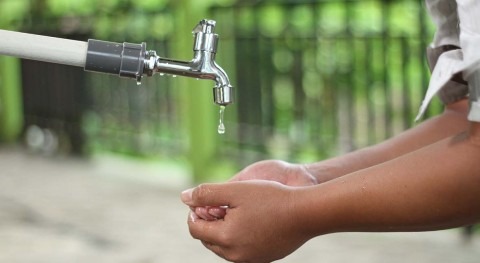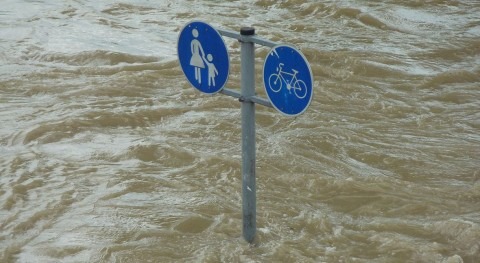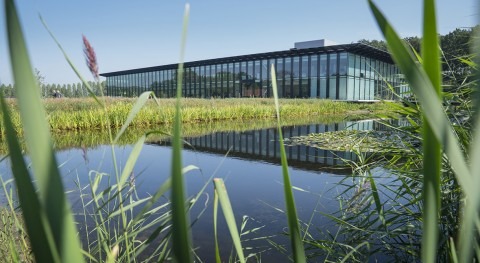Featured content
Content summary
The COVID-19 pandemic provides a stark reminder that access to safe drinking water and basic sanitation is imperative to hinder the spread of many diseases and improve the quality of life of over 4 billion people still lacking those services. Now, in the Decade of Action to deliver the Sustainable Development Goals, it is more vital than ever to progress in terms of water and sanitation and not to take a step backwards, an already arduous task which will be hindered even more by the coronavirus recession. Nevertheless, as Catarina de Albuquerque points out in her in-depth interview, cooperation in the water sector is essential if this goal is to be obtained.
With the looming threat of climate change, governments not only have the difficult undertaking of achieving water access for all, but must also deal with prolonged spells of drought and more severe flooding; essentially a world with less water. To face this frightening prospect, finding an alternative to the linear remove-use-dispose system of water is imperative: the circular economy, another of the topics covered in this issue, without mentioning the latest trends in digitalization and water treatment.
Features
Hidroconta undertakes a digital water project in a housing development using their own equipment and the Sigfox 0G network.

More evident and urgent in 2020, the KWR Water Research Institute is trying to answer the need for a water circular economy.
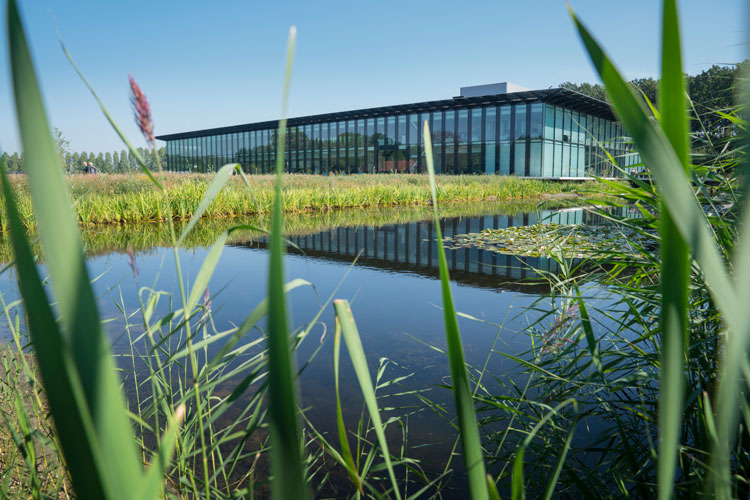
The pandemic has brought a lot of uncertainty, but has put the focus on SDG 6: can we pull together as needed to attain the SDGs?

Running a theme park and all the associated amenities takes a lot of water. Is environmental stewardship the new management trend?

A case study by Synauta illustrates how machine learning enables the optimising the operations of an Australian desalination plant.

Cities across the globe are reinventing themselves: becoming water-smart will ensure resilience to shocks and a sustainable future.

Interviews
Catarina de Albuquerque, Chief Executive Officer of Sanitation and Water for All
- When multilateralism seems under attack, it’s a privilege to witness the power of cooperation, as water doesn’t care about borders
- In terms of priorities for the SWA partnership, especially in a post-emergency world, is to advocate for preventive solutions
- A systems approach is about politicians putting in place the systems and services that make everything work: regulation, legislation, tariffs
- When I ask ministers responsible for WASH about bottlenecks, the most common answer is finance: this can mean different things
- The mix of hard evidence and successful examples of countries whose investment in water and sanitation paid off has been very well received

Pernille Weiss, Member of the European Parliament (MEP) and Chair of the MEP Water Group
- Water has endless possibilities that need to be unlocked. It's all about how we both use and re-use the water we have at our disposal
- The MEP Water Group aims to raise the profile of water to make sure that Europe’s water resources are managed in a sustainable way
- I hope we will have the chance to update the Urban Waste Water Directive and make sure it is fit for purpose to foster the green recovery
- Only when we start looking at the support the water sector provides to other sectors, can we realise its quintessential position
- Only 2.4% of the treated urban wastewater effluents are reused annually in Europe. It is a huge untapped potential for our society

Aude Giard, Chief Digital Officer (CDO) of Veolia Water Technologies
- We will witness a downgrade of capital spending in the water sector but the opportunities in the digital sector will remain unchanged
- Water utilities will stay the course on digital implementations that ensure easier remote operations and better asset performance management
- The outbreak and the experience of lockdown has shed light on digital solutions that facilitate remote working, like augmented reality
- The Software as a Service (SaaS) model has already gained attractiveness thanks to the “pay as you go” flexibility offered to the client
- The use of AQUAVISTA™ on ingredient water in the Food & Beverage industry can help track the quality of water throughout the process

Mahmoud Harb, Director, Sovereigns and Supranationals Group, Fitch Ratings
- Water risks have not caused a rating action on a standalone basis, but they have been relevant, acting as amplifiers of other shocks
- We currently assign an ESG relevance score of 3 for Water Resources and Management to three countries, namely Egypt, Laos and Namibia
- We are seeing increased interest in ESG factors in general from the investor community and the focus on water risks is set to continue
- We aim to capture water risks through their impact on structural, macroeconomic, public finance and external finance variables
- A sound institutional framework would guarantee strong governance of the water sector and support its financial sustainability
- Capacity to implement demand-side measures is generally weaker in emerging countries given the complexity of these measures

Dr Adam Loch, Senior Lecturer at Centre for Global Food and Resources, University of Adelaide
- In countries where theft monitoring, detection, prosecution, and conviction mechanisms are poor, then theft will likely be higher
- As water and access to water decreases, then the motives for people to steal it will increase. This is a huge looming problem
- In the case of our work, we can also determine the effectiveness of penalties and how they may/may not provide effective deterrents to theft
- We have very little real data to work with, which hampers efforts to recognize the issue and a call to arms to deal with it
- Telemetry and water meters are being used in Australia to collect real-time data on use & extraction, but are still subject to uncertainty

Opinion articles
- Chengzi Chew, Business development – emerging technology, DHI
- Josien Sluijs, Managing Director Aqua for All
- Nuno Fragoso, Consultant, Environment, Organization & Technology
- Olcay Ünver, UN-Water Chair
- Dr. Richard J. Vestner, Senior Director, Bentley Systems
- William Nuttle, Consulting Hydrologis
- Walid Khoury, Leading Water Strategist


